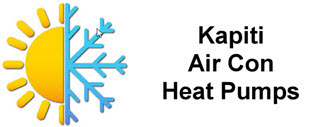POPULAR QUESTIONS
The procedure to remove the ‘fascia’ (i.e. front panel) and access the filters of your indoor unit is found in the operation manual that comes with your air conditioner.
To clean an air filter, simply vacuum away any dust on the filter or wash the air filter with natural detergent thinned with lukewarm water, then allow the filter to dry outside in a shaded area.
In the case of a Titanium Apatite Photocatalytic Air Purification Filter, both vacuum away any dust and then soak the filter in lukewarm water for 10 to 15 minutes before allowing to dry outside in a shaded area.
The correct Heat Pump will make a big difference to both the energy consumption and experience of your new Heat Pump. Robin is there to assist at every stage, he will assess all factors impacting on your indoor temperature and influencing your home’s heat load.
Every home is different, and the right air conditioner will depend on many factors, such as room orientation, window size and ceiling insulation, just to name a few. It’s an important decision to get right, as an Heat Pump that’s too small won’t adequately heat or cool your home, and one that’s too large will be inefficient and expensive to run.
Robin has the knowledge, skills and experience to help you make the right choice.
Call him today on 027 298 0041
An energy label is required for all single phase (the standard method of distribution of electric power in lighting and heating), non-ducted air conditioners and provides consumers with information on the energy efficiency of a product.
The higher the star rating of an air conditioner, the more efficient the product is.
You should make sure an energy label is the same layout as the one on-screen to ensure it complies with current government requirements.
Talk to Robin to find out which Heat Pumps are the most efficient for your home
‘Cooling capacity’ is the measure of an air conditioning system’s ability to remove heat from a room, thus making the room ‘cooler’.
The reverse of this gives you ‘heating capacity’ (i.e. an Heat Pumps ability to remove heat from outside and transferring this into the room).
Capacity in these instances is always measured using the rated conditions specified in the official document: Australian/New Zealand Standard: Performance of electrical appliances – Air conditioners and heat pumps (also known as ‘AS/NZS 3823’).
Generally the unit used for this measurement is specified in Kilowatts (kW).
As a general rule, you should clean your Heat Pump filters within the indoor unit every two weeks. In more dusty or polluted environments you should clean your filters more regularly.
Cleaning your filters is the most important maintenance task you can do to care for your air conditioner.
Blocked filters can reduce your Heat Pump’s efficiency significantly. Replacing a blocked-up filter with a clean one can lower your air conditioner’s energy consumption by anywhere from 5% to 15%.
For the Titanium Apatite Photocatalytic Air Purification Filter featured in many modern, high quality Heat Pumps, cleaning it once every six months and replacing it once every three years is recommended.
The comfort of your family or business is a serious investment, and in considering a suitable Heat Pump system ‘reliability’ is a key concern in the context of the often challenging New Zealand climate.
Robin only installs Heat Pumps which are built to a premium standard, with strict quality control measures implemented.
If your air conditioner will be installed by a Specialist Installer like Robin you can be assured that your Heat Pump is implemented specifically and professionally to perform reliably and at their peak.
For example – Daikin further offers a 5-year warranty on all domestic products purchased and installed in New Zealand, as proof of their continued confidence in the quality and reliability of their systems.
Call Robin today on 027 298 0041 to discuss the best possible Heat Pump system for your home and your budget.
